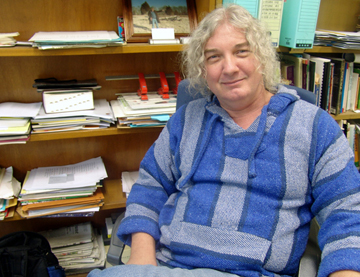 Now that it is the Halloween season, it’s natural to start thinking about scary things, but it’s also easy to forget that some things aren’t scary anymore, even though they used to be very frightening when we were younger. For young children, a bicycle can be a very frightening thing: they very much want to learn how to ride it, they know it’s important to learn how to ride it, but they are naturally afraid to try. For this article, however, the bicycle is only a metaphor. The real topic of this article is the Korean students who are afraid to have conversations in English with foreigners.
Now that it is the Halloween season, it’s natural to start thinking about scary things, but it’s also easy to forget that some things aren’t scary anymore, even though they used to be very frightening when we were younger. For young children, a bicycle can be a very frightening thing: they very much want to learn how to ride it, they know it’s important to learn how to ride it, but they are naturally afraid to try. For this article, however, the bicycle is only a metaphor. The real topic of this article is the Korean students who are afraid to have conversations in English with foreigners.I use the bicycle analogy often in my English conversation classes at Keimyung University. The majority of my students, even those who have very good English language skills, say their biggest fear is to have conversation in English with foreigners. I’m talking about “real” conversation here, not anything to do with a classroom or filling out a “questionnaire” assignment for a class. Just meeting someone and talking with him or her about something you both want to, or need to, talk about.
This doesn’t apply to all of my students, of course. Some of my students have told me, quite honestly, that after they get a good score on the TOEIC test, they don’t care if they ever speak English again. However, in our one-on-one conversations, the majority of my students say they really want to “use” English for traveling, for business purposes, or just for the ability to use it.
Most of those students, by the way, aren’t afraid to talk to me. I’m a professor and they’re students, so that relationship makes them a little more confident. They tremble, however, when I give them their “Conversation Journal” assignment (five times during the semester, outside of the classroom, they must find a foreigner and have a “real,” unscripted conversation in English and then write a short report about it). They very much want to learn how to do it, they know it’s important to do it, but they are naturally afraid to try.
The bicycle metaphor works for that reason (“desire” against “fear”) but I find it also works for another reason. Unlike almost everything else connected with learning a foreign language (listening, reading, writing, learning grammar) actual conversation in a second language is similar to riding a bicycle because you can’t learn it until you do it. Just like learning to ride a bicycle (or learning to swim, or lifting weights), you could read a book about it, or find an online video, or even stand and watch while other people do it ... you could, but it won’t help you. The only way to learn how to ride a bicycle is to get on the bicycle. That means overcoming fear.
Is the fear rational? Well, yes, actually. Riding a bicycle presents some actual physical dangers; making a mistake can cause a severe injury to yourself or others. As for speaking English to foreigners, I tell my students that 99% of the time, they don’t need a helmet. Of course, the fear about second-language conversation is the fear of making a mistake, or even worse, being embarrassed.
So here’s how I reassure my students: I tell them, of course you will make mistakes. You’ll probably be embarrassed! However, after you’ve actually lived through that, you’ll actually feel better. Why? Because you tried. Making a mistake because you tried to do something is much, much better than allowing fear to keep you from doing something you want to do.
However, in talking with my students about this subject over the past several years, I’ve begun to understand another aspect of this situation. Many Korean students automatically assume that everything done in English is just like being in a classroom. In other words, they think every foreigner they approach is going to mark their conversation mistakes in red ink and demand corrections! Many of my students have expressed surprise and relief when they find out that, in “real” conversation experiences, most if not all foreigners ignore the minor mistakes, and only comment when actual confusion is happening.
So there’s one more reason to compare learning to ride a bicycle to having conversation in a second language. Most children don’t learn to ride by themselves; a parent or an older sibling is with them, to encourage them, to help guide them, or even to help them up and back on the bicycle if they do fall off. Remember that conversation is never just about you. If you’re sincere, and if you’re trying to be friendly, even a foreigner is going to try to help you.








